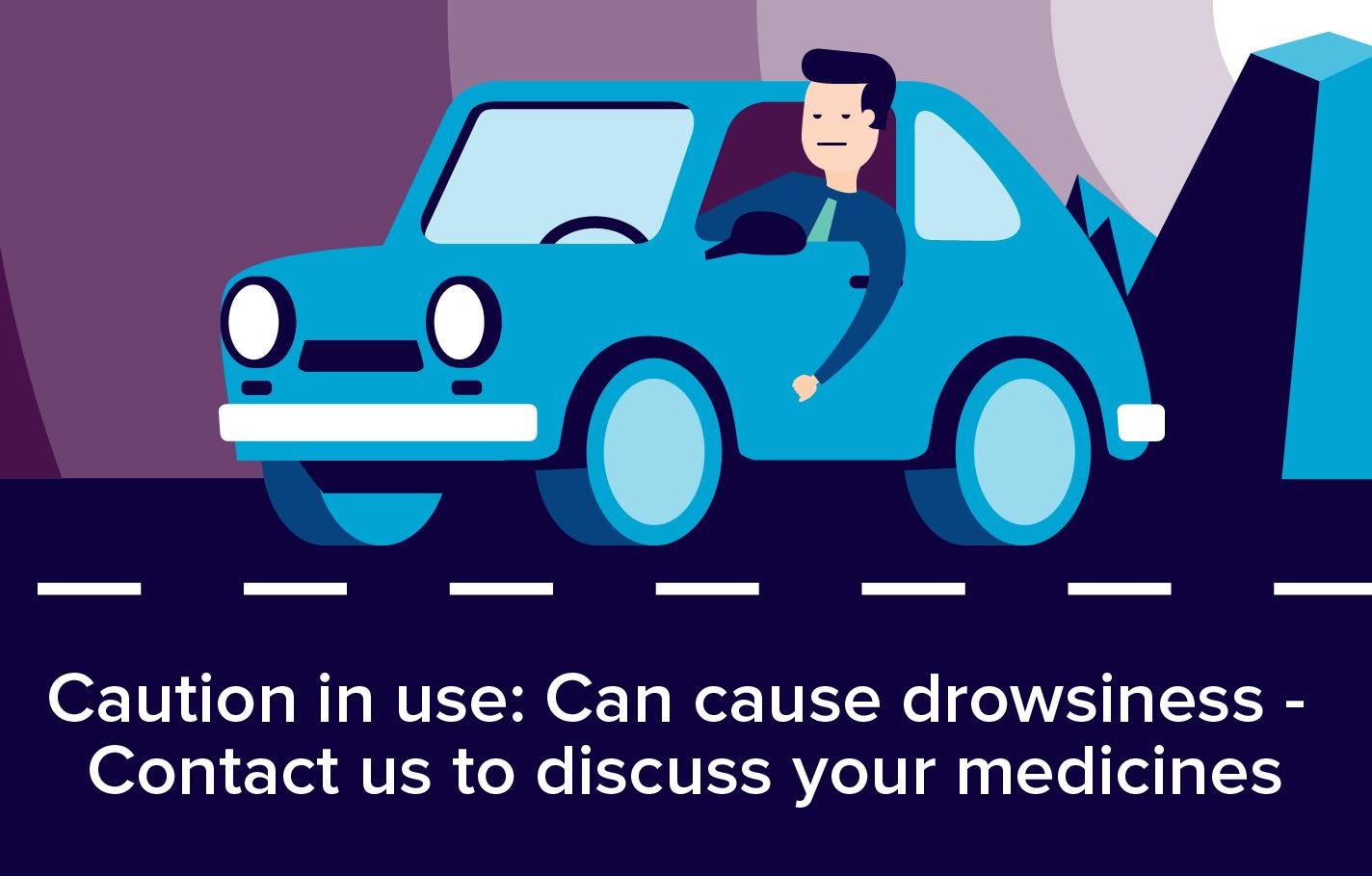Epilim is used to treat epilepsy (fits) in adults and children. Epilim is also used to treat and prevent mania associated with bipolar disorders.

Why have I been prescribed Epilim?
- Epilim is used to treat epilepsy (fits) in adults and children.
- Epilim is also used to treat and prevent mania associated with bipolar disorders.
How does it work?
Epilim contains sodium valproate. It belongs to a group of medicines called anti-convulsants or anti-epileptic agents. It works by helping to calm the brain down.
When and how do I take it?
Always take Epilim exactly as your doctor has told you. You should check with your doctor or pharmacist if you are not sure.
Taking this medicine:
- Your doctor will decide how much Epilim to give you or your child depending on your or your child’s body weight
- Take this medicine by mouth
- Do not crush or chew the tablets
- If you feel the effect of your medicine is too weak or too strong, do not change the dose yourself but ask your doctor
How to take this medicine:
- The dose is normally split and given half in the morning and half in the evening
What’s the dose?
How much to take Adults (including the elderly):
- The starting dose is 600mg daily. Your doctor should gradually increase this dose by 200mg every 3 days depending on your condition
- The usual dose is between 1000mg and 2000mg (20-30mg per kilogram of body weight) each day
- This may be increased to 2500mg each day depending on your illness
Children over 20 kilograms:
- The starting dose should be 400mg daily. Your doctor should increase this dose depending on your child’s illness
- The usual dose is between 20mg and 30mg for each kilogram of body weight each day
- This may be further increased to 35mg for each kilogram of body weight each day depending on your child’s illness
Children under 20 kilograms:
- The usual dose is 20mg for each kilogram of body weight each day
- Depending on the child’s condition your child’s doctor may decide to increase the dose
Could it interact with other tablets?
Please tell your doctor or pharmacist if you are taking or have recently taken any other medicines. This includes medicines you buy without a prescription, including herbal medicines.
This is because Epilim can affect the way some other medicines work. Also some medicines can affect the way Epilim works.
The following medicines can increase the chance of you getting side effects, when taken with Epilim:
- Some medicines used for pain and inflammation (salicylates) such as aspirin
- Some other medicines used to treat fits (epilepsy. This includes medicines such as phenobarbital, primidone, phenytoin, carbamazepine, topiramate, lamotrigine and felbamate
Epilim may increase the effect of the following medicines:
- Medicines used for thinning the blood (such as warfarin)
- Zidovudine used to treat HIV infection
- Medicines for depression
- Monoamine oxidase inhibitors (MAOI) such as moclobemide, selegiline, linezolid
- Medicines used to calm emotional and mental conditions such as diazepam and olanzapine
The following medicines can affect the way Epilim works:
- Some medicines used for the prevention and treatment of malaria such as mefloquine and chloroquine
- Cimetidine used for stomach ulcers
- Some medicines used for infections (antibiotics) such as imipenem, meropenem, rifampicin and erythromycin
- Colestyramine used to lower blood fat (cholesterol) levels
Herbal products should also only be taken after talking with your doctor.
What are the possible risks or side-effects?
Tell your doctor as soon as possible if you have any of the following side effects:
Changes in behaviour including being very alert, and sometimes also aggressive, hyper-active and unusual or inappropriate behaviour. This is more likely if other medicine to treat fits such as phenobarbital and topiramate are taken at the same time or if the Epilim starting dose is high or has been suddenly increased.
Changes in the amount of ammonia in the blood. Symptoms of this condition are being sick, problems with balance and co-ordination, feeling lethargic or less alert
- Feeling shaky (tremor), sleepy or unsteady when walking or jerky muscle movements
- Feeling tired or confused with loss of consciousness sometimes accompanied by hallucinations or fits
- Blisters with the skin flaking away
Tell your doctor or pharmacist if any of the following side effects get serious or lasts longer than a few days, or if you notice any side effects not listed here:
- Feeling sick, stomach ache or diarrhoea, especially when starting treatment. This may be helped by taking them with food.
- Fainting
- Hearing loss
- Skin problems such as rashes. These happen rarely, but more often in people also taking lamotrigine
- Hair loss which is usually temporary. When it grows back it may be more curly than before
- Skin rash caused by narrow or blocked blood vessels (vasculitis)
- Changes in women's periods and increased hair growth in women
- Breast enlargement in men
- Swelling of the feet and legs (oedema)
- Weight gain - as your appetite may be increased
- Kidney problems, bedwetting or increased need to pass urine
Can I drink Alcohol while taking it?
- There are no known interactions between alcohol and Epilim.
- Always check with your pharmacist or doctor first though, as other medications you may be taking may be affected by alcohol.
What if I’m pregnant/breastfeeding?
If you become pregnant, think you may be pregnant or plan to become pregnant while taking Epilim, you must tell your doctor straight away.
- Your doctor will suggest changes to your treatment or dose
- He or she will also want to check your progress while you are pregnant
It is very important that you discuss your treatment with your doctor well before you become pregnant.
Breast-feeding:
- Very little Epilim gets into the breast milk. However, talk to your doctor about whether you should breast-feed your baby.
If you have any more questions please ask your Pharmacist.
Remember to keep all medicines out of reach of children
Please Note: We have made every effort to ensure that the content of this information sheet is correct at time of publish, but remember that information about drugs may change. This sheet does not list all the uses and side-effects associated with this drug. For full details please see the drug information leaflet which comes with your medicine. Your doctor will assess your medical circumstances and draw your attention to any information or side-effects which may be relevant in your particular case.
References:
http://www.epilepsy.com/connect/forums/medication-issues/epilim-and-depression
http://www.netdoctor.co.uk/medicines/brain-and-nervous-system/a6665/epilim-sodium-valproate/
http://www.hpra.ie/img/uploaded/swedocuments/2122393.PA0540_150_002.eef9755a-0c2c-45eb-a681-0705882aeafb.000001Epilim%20Enteric%20200%20and%20500mg%20PIL%20Bar%20002%20and%20Bar%20003.141201.pdf
https://en.wikipedia.org/wiki/Valproate


